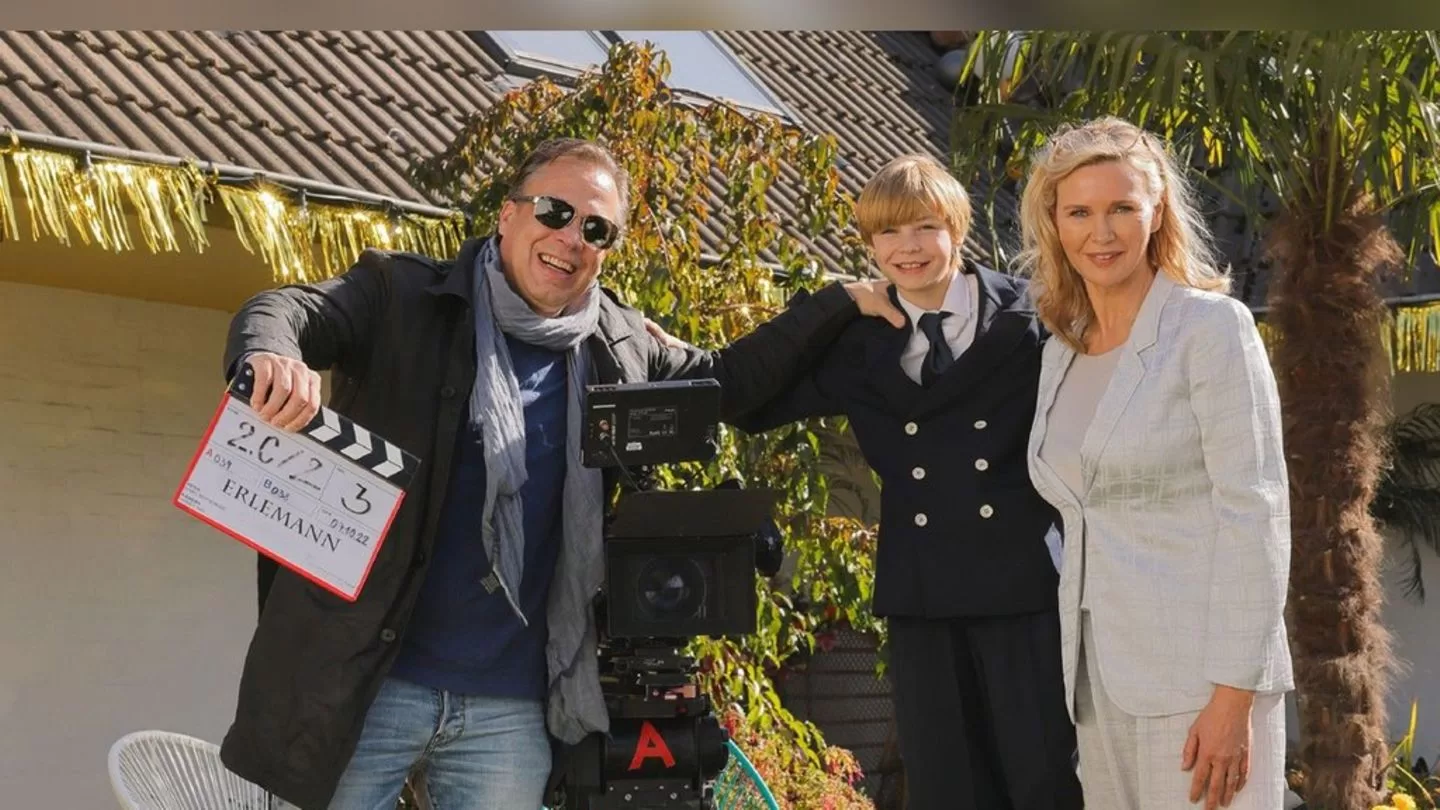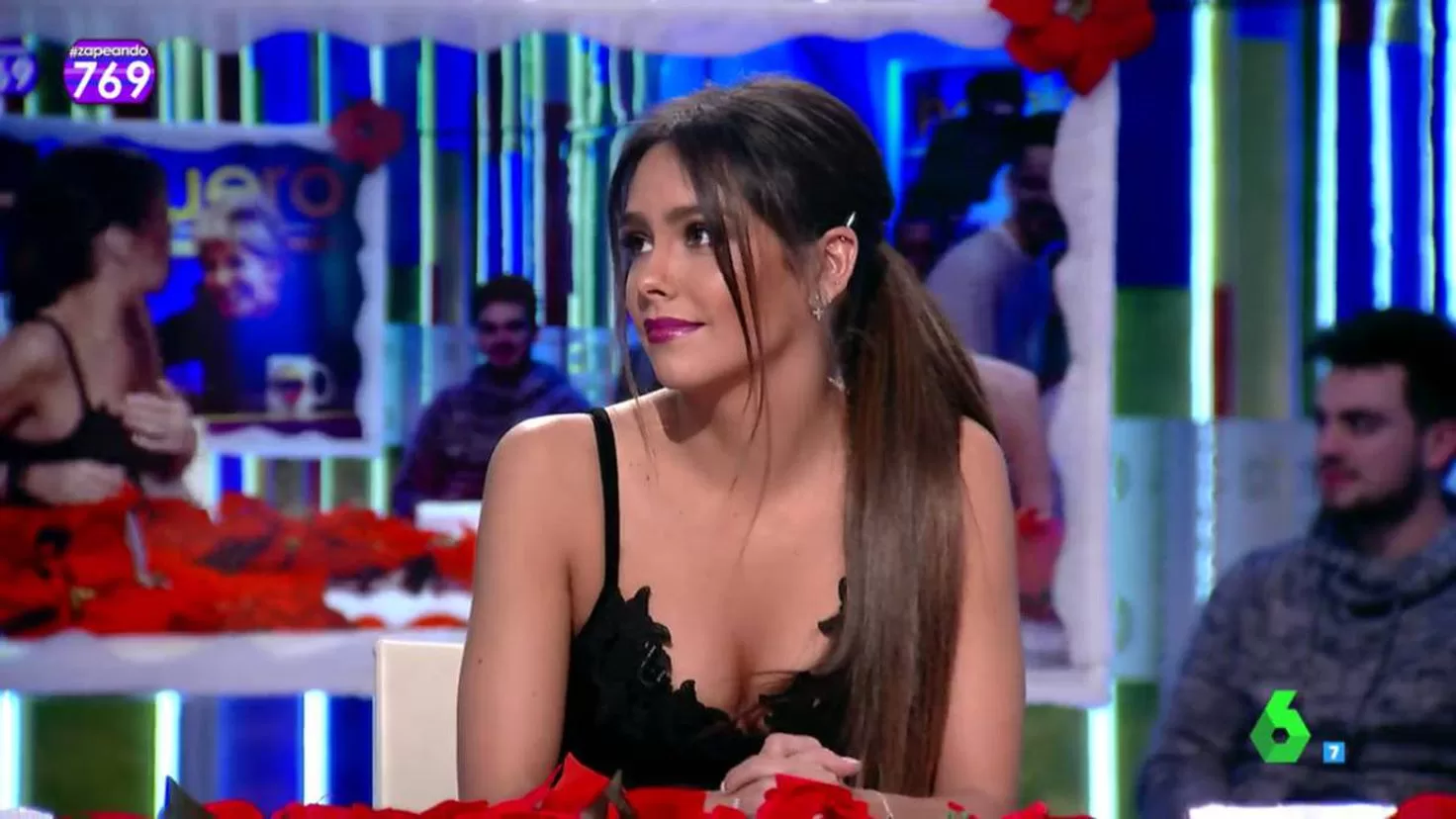In “Kidnapped – Survive 14 Days” Johannes Erlemann’s kidnapping is recounted. He reveals details about the film with producer Veronica Ferres.
In the RTL+ original “Entfhrt – Survive for 14 Days” (free TV broadcast on Thursday, September 14th at 8:15 p.m. on RTL) a kidnapping case from 1981 is retold. Johannes Erlemann, who was eleven years old at the time, was kidnapped and held prisoner on his way home in Cologne. His father, the entrepreneur Jochem Erlemann, was in custody at the time for alleged tax fraud. Only after 14 days and the handover of three million marks in ransom money is Johannes Erlemann finally released.
In addition to the feature film, his story will be featured in a “stern TV special” (following at 10:30 p.m. on RTL), the documentary series “Lebenslnglich Erlemann” (on RTL+), the “RTL+ True Crime Time” podcast and in a book (to be published on April 3, 2024). In an interview with the news agency spot on news, Johannes Erlemann, who advised the filmmakers, explains why the project came about thanks to producer Veronica Ferres, 58, how intensive the filming was for him and how the kidnapping still affects him today . Veronica Ferres also talks about what particularly moved her about the case and how complex the work on the project was.
Mr. Erlemann, you stated in a statement that without Veronica Ferres the project would not have come about as it did. How did she convince you?
Johannes Erlemann: Veronica Ferres was a fateful encounter for me. I had been thinking intensively about publishing my story as a book for many years. When I made this intention public at some point in an interview, it didn’t take long until the most well-known film productions came forward. That made me very curious. And yet most people ultimately wanted to acquire the rights to the story and make “their” film out of it. That wasn’t my intention at all.
I always saw this as a missed opportunity because very few people understood that as a “survivor of my fate” I wanted to design the project together in order to create something unique: a maximally authentic contemporary document as an approach to the depths of the extortionate kidnapping of an eleven-year-old child . The special thing: Veronika came to me with identical considerations and from then on the common path was our destiny.
They also describe you as your “closest confidante.” How did this trust and close relationship develop?
Erlemann: Our meeting was accompanied by this special, rare moment in the first few seconds. And as they say…: “You’ll never have a second chance for the first impression.” But that wasn’t crucial. It was the foundation of a particularly close friendship that made our unique project possible.
To what extent were you able to process what you experienced through the project? Were there moments when the memories became too much for you?
Erlemann: At the beginning I could only imagine the scope and intensity of our mission. I already knew that I was embarking on a wild adventure. And yet there were a handful of situations that brought me completely back to earth with the reality of my own tragedy.
For example, when we shot the release scene at night at the original location. A moment in which it was unclear at the time whether the kidnappers would run me over with their car or not. For Cecilio Andresen, who portrays me as a little boy, I recreated every event in minute detail. I lay on the floor, had myself tied up, etc.
When the camera was rolling, I filmed a bit with my cell phone and watched the footage over and over again at home. Even though it wasn’t a memory that was too much for me, this moment undoubtedly had a special intensity that I have never dealt with in this way before. But our project helped me put a tick behind this chapter too. I was also completely stunned that the implementation corresponded 100 percent to reality. As if there had been a camera there at the time.
How does the kidnapping still affect you today?
Erlemann: To be honest, the topic concerns me every day today. We produced a feature film and a four-part documentary. There is also an extensive podcast series. And a book that I ultimately decided to write myself with the support of the publisher. The latter describes incredible events that we didn’t have time for in the feature film. It is also shaped by feelings and sensations that only I can formulate. And I do it ruthlessly. It’s a blessing that RTL welcomed me like a child of the family. I can develop unconditionally. It’s hard to believe that something like this still exists today.
Ms. Ferres, you were able to convince Mr. Erlemann of the project. Why was the project important to you?
Veronica Ferres: I have rarely met such a life-affirming person in my life as Johannes Erlemann. I wanted to look behind the curtain and take the viewer on this journey. I constantly asked myself the question: How can one overcome and cope with such isolation and loneliness and not perish from it? How can an eleven-year-old develop so much independence and take the helm – after all, Johannes had to deal with very dangerous kidnappers – where did he get this confidence? And the fact that he saw a small chance to survive and only allowed this into his emotional world fascinated me very much.
What struck you particularly emotionally about the case?
Ferres: I was particularly surprised, but also moved, by what happened to Johannes after his release. The months-long interrogation situation by the police, the suspicion of his parents of having kidnapped their own son, the rejection of his classmates and the fact that an eleven-year-old and his honest and true statements were not given any importance were shocking to me. But I was also very emotionally moved by his mother’s truly heroic attitude.
Did you hear about the case as a teenager? What memories do you have of it?
Ferres: I remember a general feeling of fear from that time and a great deal of caution in how all parents interact with their children. I knew the name Erlemann, but I didn’t know any details.
What was important to both of you when making the feature film due to the sensitive subject matter?
Ferres: It was particularly important to me to portray a piece of contemporary history that gives insight into the soul of an abductee and his incredible strength, but also into the abysses of the kidnappers.
Are there places in the film where fiction differs from reality?
Ferres: No, our film is true and real. This was immensely important to our great director Marc Rothemund. That’s why we did years of research and discovered many original documents. Everything you see happened like that.
Mr. Erlemann, Cecilio Andresen plays you as a little boy. What was the first meeting like and how did you experience his appearance in the film?
Erlemann: The casting of ‘Little Johannes’ was by far the most difficult for me. Construction Film did an incredible job. But when it came to identifying myself, I could no longer be objective. In the final analysis, I completely relied on the sensitivity of Veronika and our director Marc Rothemund. This decision couldn’t have been better, as the performance of “Cito” leaves me speechless.
Our first meeting was full of vitality, commitment and creativity. And while I was still thinking about the little boy’s resilience, he ridiculed me with questions down to the very last detail. In some places I even recognized myself.
Ms. Ferres, what challenges did the documentary series pose in particular compared to the feature film?
Ferres: The documentary series depends on attention to detail and the obligation to be faithful to the facts. Achieving this balancing act to create exciting entertainment was the biggest challenge. This started with the selection and partnership with the great Lutz Heineking Jr. and his production company eitelsonnenschein. I’ve had the feeling for a long time that Lutz and I could do something very special with our team.
I admire Lutz for his artistic style and his great awkward humor. Even if this sounds strange, despite all the tragedy and drama, despite all the tension, there are still moments when you have to laugh… because it’s so unbelievable what happened there. These elements of lightness despite the heaviness are very important in keeping the fascination of the story high. The fact that Lutz was able to attract the great director Jutta Doberstein was a very important step. The work in the background of the documentary series was so exciting, partly detective-like, to get all the original materials.
Unpublished images, files and tape recordings were used. How difficult was it to reconstruct the case from the 80s?
Ferres: Yes, we have a huge collection of original letters, files, photos, films and tape recordings. It took years to sift through all of them and, thanks to Johannes, Lutz and Jutta, to develop the common thread. It was an intensive time and a creative working culture with discussions that we all had together and that was very good for the project.
In addition to the film and series, there is a podcast, a book and magazine articles planned. To what extent do these show other perspectives?
Ferres: The task was always that each project stands completely on its own. This means that in the documentary you will experience completely different things than in the feature film. The podcast deals with different aspects than the documentary. And the book will be written in a very personal way by Johannes and describe his life before, during and after the film.
Mr. Erlemann, what message do you ultimately want to convey with the comprehensive review of your story?
Erlemann: In the past few years I have dealt a lot with strokes of fate without ever making too many comparisons. Every event has its own intensity. I learned that dealing with my history is a special privilege for me. No matter how lasting a trauma is. At some point there is still a light at the end of the tunnel. No one can heal the scars on a soul. But maybe I can offer some perspective on how to deal with it. And that is my mission.



